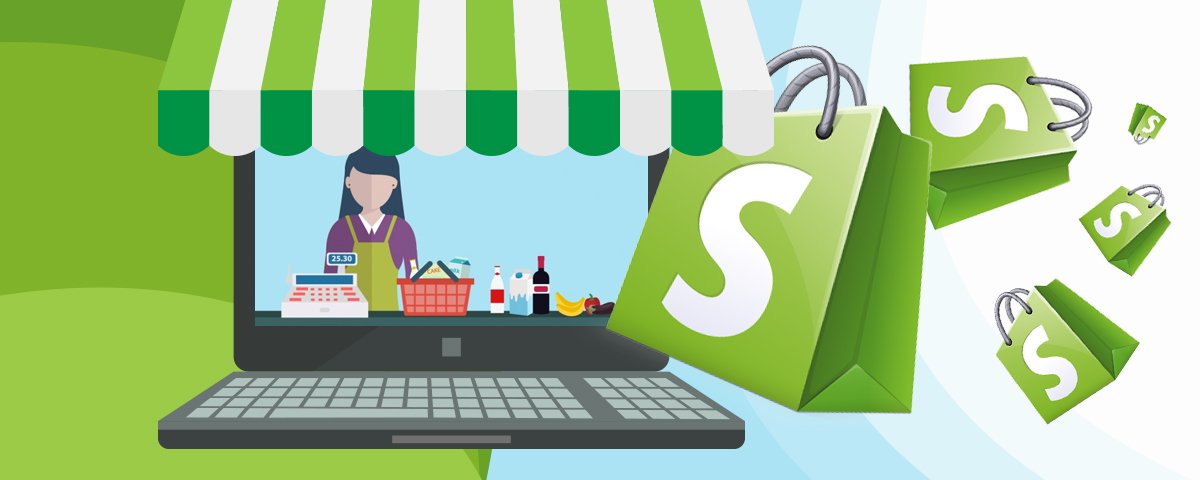Pros and Cons of Shopify as an E-commerce Platform for Your Online Store
Shopify is a popular and one of the most useful e-commerce tools for anyone who wants to start an online retail business or another type of e-commerce enterprise. It works with most third-party web-hosting providers, as well as with a number of credit card processing gateways. This adaptability allows you to quickly start a business in the field of e-commerce. This is article is about pros and cons of shopify as an E-commerce platform for your online store.
Pros and Cons of Shopify
Shopify is not just an easy way to get your online store up. It is designed to help store owners in key areas such as adding additional channels (such as Amazon, eBay, or Facebook), providing customer support tools (such as chat), and solving technological problems.
It’s also worth noting that Shopify is not just an “online store system”. You can use its tools in a regular office or store. Shopify offers a POS (Point of Sale) solution that allows you to easily set up your store and synchronize offline sales with the Shopify system. Undoubtedly, it is simpler to run a business when everything is a stone’s throw.
In this article, we are about to discuss what is so special about Shopify and what types of services they offer. If you haven’t tried Shopify yourself yet, you’ll get an idea of what to expect from them. If you’re already using Shopify for your online store, you can learn something new about what they have to offer your business.
The Advantages of Working with Shopify
1. Quick Installation, Easy to Use
Shopify offers an easy way to quickly launch an online store without the fuss and development costs that may arise on platforms such as Magento, for example. The interface of the administrator’s personal account is very convenient and intuitive because all functions are logically structured. You can find many articles and instructions, as well as video guides on the Shopify website.
2. No Worries About the Technical Component
You don’t need any technical knowledge to run an online store. All software, hosting, and SSL certificates are provided by Shopify. Shopify hosting will be much faster and safer than in the case of working with other site management systems. It will easily adapt to any traffic surges. Shopify will also take care of all software updates. This way, you can focus all your efforts on selling goods and not worry about technical problems.
3. Safety and Reliability
Having an online store means that you will be dealing with confidential customer information, including credit card details. This means that your website should be fast and secure. Shopify will take care of server maintenance and updates so that your store is always available to customers, as well as provide fast page loading.
SSL certificates will be integrated into your Shopify store to encrypt data and transfer it over a secure connection. In addition, Shopify takes care of PCI compliance (required when you are dealing with credit cards).
4. 24/7 Customer Support
Shopify pays great attention to customer support. Their team is available 24 hours a day, 7 days a week, and responds to the request almost instantly. This means that when faced with a problem, you will never be left alone and will always receive feedback. You can contact the support department by phone, email, or online chat. In addition, there is a Shopify help center, as well as many thematic forums about working with the platform.
5. Adaptive Design
Since the number of site visits from mobile devices is now significantly higher than from computers, it is not desirable, but necessary to optimize the site for different screen resolutions. All Shopify themes are adapted for mobile devices. This means that your store will look great on all devices, and your customers will be able to shop wherever they are.
By the way, Shopify has free apps for iPhone and Android that will allow you to manage your store from a mobile device.
6. Shopify Themes
The Shopify Themes store has more than 70 different themes (free and paid), each of which is adapted for mobile devices. Moreover, hundreds of themes are available on sites such as ThemeForest, etc. Each theme is easily customized by editing the code. Thus, with Shopify, it is very easy to create a beautiful and unique online store that will promote your brand.
7. Shopify Apps
The Shopify App Store is a treasure trove of functionality that you can add to your store. You can create various loyalty programs, lists of favorite products, integrate accounting software, not to mention numerous marketing applications to increase the average check and increase the conversion of the site, such as Upsell & Cross sell app. You will definitely find exactly what your business needs.
8. SEO and Marketing Tools
Another important feature of Shopify is the powerful search engine optimization (SEO) functions that will help your site take a higher place in the search results. You will also have access to advanced analytics that shows where your customers are coming from so that you can adjust your marketing strategy if necessary. For instance, to fully optimize Shopify you may decide to adjust your marketing strategy by choosing to team up with an SEO agency so as to reach a larger audience and increase sales.
The app store gives you access to a huge number of marketing tools, including the integration of social networks (social network icons are in all themes), the import of product reviews, and email marketing. In addition, Shopify allows you to create promo codes for discounts.
9. Recovery of Abandoned Baskets
What happens if a visitor to your store puts items in the basket, but leaves without buying them? According to statistics, more than two-thirds of potential customers drop shopping carts, so Shopify offers a feature to restore an unpaid shopping cart. The service automatically tracks and sends a reminder letter to potential customers about the completion of the purchase.
10. Own Payment System
Shopify makes it possible to integrate dozens of different payment systems, but also offers its own Stripe-based one. If you decide to use Shopify Payments, you will free yourself from additional transaction fees, and you will also be able to manage the store and do all the work regarding finances in one personal account.
Pros and Cons of Shopify as an E-commerce Platform for Your Online Store
And What About Cons?
1. Customize Theme Using Your Own PHP Language
The Shopify platform uses its own PHP language called “liquid”. All themes are encoded in this format. This makes it harder to set up a theme if you don’t know how to code in Liquid or don’t want to hire a developer who knows how to code Shopify themes. Several reviews of Shopify from developers mention that Liquid is an easy-to-learn language, but most people find it inconvenient to mess with the code. If you don’t want to edit the main theme files, you don’t have to use pre-created ones.
2. Limits
Shopify’s limit of 3 options and 100 variants per product. But it can be solved by creating separate pages for each product; using code or installing an application, e.g. advanced product options.
To Draw the Line
It doesn’t matter if you have a regular store or you are just starting to open a new e-commerce store, Shopify can be the perfect choice for you. Although it is true that problems may arise along the way, creating an online store with Shopify is definitely worth your investment (time and money).
We can recommend Shopify especially if you want to expand your online presence and capture a part of the lucrative e-commerce market. Shopify offers flexibility and the opportunity to grow your business. Shopify has everything you might need – from creating a product page to shipping or downloading.
You have every chance to increase your sales by integrating with Shopify’s latest technologies.

Founder Dinis Guarda
IntelligentHQ Your New Business Network.
IntelligentHQ is a Business network and an expert source for finance, capital markets and intelligence for thousands of global business professionals, startups, and companies.
We exist at the point of intersection between technology, social media, finance and innovation.
IntelligentHQ leverages innovation and scale of social digital technology, analytics, news, and distribution to create an unparalleled, full digital medium and social business networks spectrum.
IntelligentHQ is working hard, to become a trusted, and indispensable source of business news and analytics, within financial services and its associated supply chains and ecosystems





























